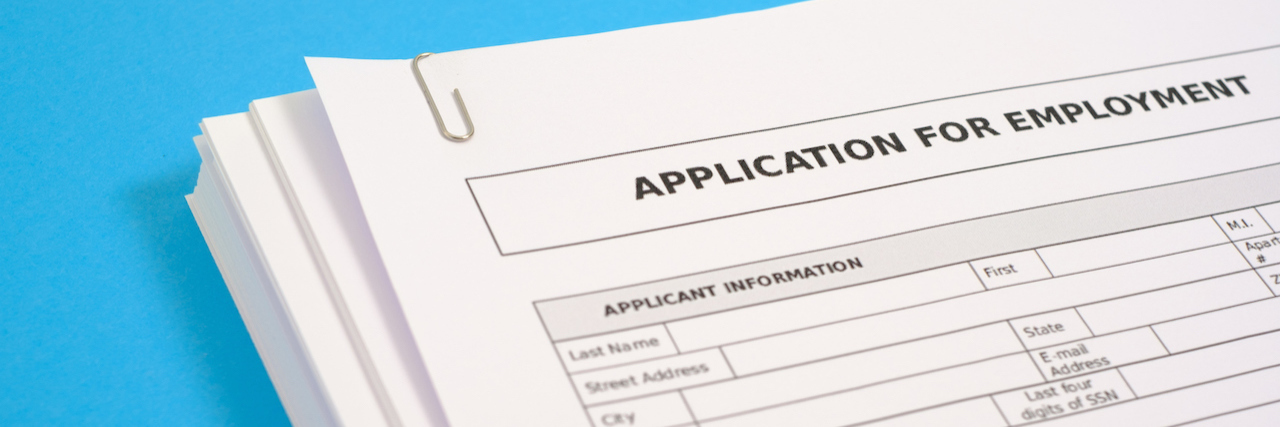Why I've Lied on All My Job Applications as Someone With a Mental Illness
I want to be real. I want to be honest and authentic and brave, but the truth is, I have lied on every single job application I’ve ever filled out due to the “voluntary disclosure” section on all applications.
I have been diagnosed with both bipolar II disorder and major depression disorder; which of the two diagnoses is correct? Probably bipolar II disorder, but it really shouldn’t matter. I have struggled with depression since my parents divorced when I was around age 12. I believe both the emotional strain of puberty coupled with the trauma incurred from the divorce caused the expression of a genetic vulnerability — a condition described in a 2005 paper by Bruce J. Ellis of the University of Arizona and W. Thomas Boyce of the University of California, Berkeley. In their paper titled, “Biological Sensitivity to Context,” they outline the concept of two types of children, the orchid child and the dandelion child. Dandelion children have a resilience and ability to bounce back from less than ideal environmental stressors. Orchid children, however, are more sensitive and wither in conditions that are psychologically straining.
It is in this era of genetics, epigenetics and better understanding of developmental factors and influences I still find myself in a stone age society. Science and psychology have begun to unfurl some of the long standing secrets behind our differences — in conditions, disorders and illnesses that have been around a long time. Yet in this same moment, we live in a time where a company has to be mandated by law to not fire an employee asking for unpaid time off for qualified medical and family reasons (exclusions apply, see FMLA law for details). But the FMLA law supposes that you even get hired on in the first place (and that your place of employment has at least 50 employees, etc.), but what if you want to be honest about a diagnosis you have that may or may not affect your ability to pass for an average worker?
Well, research shows that, “In surveys over the past five decades, employers have expressed more negative attitudes about hiring workers with psychiatric disabilities than about almost any other group.” So the voluntary disability disclosure that appears on all job applications is really a government-mandated trick question. If you answer yes, the odds are that you will not get a call about that job.
Another more recent study confirms the discrimination on the part of employers based on disclosure in a cover letter for a job. The researchers used “a spinal cord injury or Asperger’s syndrome” in some cover letters and no disability but the same qualifications in others. The results showed a “26 percent lower chance of employer interest for applicants with disabilities.” So while this study doesn’t use depression, anxiety or another mental illness, the results would probably sadly be the same.
I really hope I live to see the day we can be who we really are. A day when we can embrace the darker parts of ourselves, so in the embracing they become less powerful. So what if I have depression? It’s something I can’t help. So what if I like rainbow colored hair? That doesn’t make me less professional or take away from my three degrees. So what if I like tattoos or piercings or chinchillas? None of those things affects how I treat other people, my character or who I am. We have to be authentic and genuine, and I think part of that starts with shedding this idea that we have to hide who we are.
Americans work an awful lot, we give a significant portion of our lives to our work, so why should who we are stop at the door? We shouldn’t be ashamed to talk about or disclose mental illness. Despite our stubborn Western mentality, we are, for better or worse, each connected to each other. We are all human, and we need to embrace a culture of supporting each other in our areas of need. We all have strengths and weaknesses, but if we all helped each other, how much stronger could we all be?
Getty image via tommaso79

